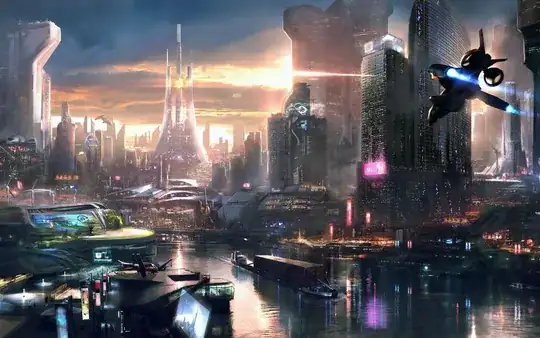If we look at the imaginations of futurologists of yesteryear, and their expectations of what we'd have today, two things stand out, at least to me:
They were wrong about the cool stuff that they expected would be commonly used by everyone. Meals in a pill, robot maids, flying cars, jetpacks, supersonic trains and planes, moving sidewalks, weather control, rotating space stations with artificial gravity, moon stations and so on.
They were wrong when they were right. When Flash Gordon leaps out of the spacecraft he clips on his little levitation belt instead of a parachute, and grabs the briefcase-sized communicator radio. The videophone is not wireless, but rather built into the wall of a house, with a CRT and everything.
So, in general, it seems best, when looking at the past, to assume that things will NOT change, unless there's a clear sign that technology must inevitably change things. What technology could come along that will make shipping obsolete? Better roads?
But if the factories already exist by the rivers/dams for cooling, and for proximity to power generation, surely the rivers will remain the best way to get the materials to the factories, and to get the output away?
Any visit to any lake or beach in the US on the weekend will tell you that there will never, ever be a day, in any conceivable future, where pleasure craft will be obsolete. Instead, what we can guarantee is that the existing plethora of designs will be joined by newer ones as the tachnologies advance. But there'll still be people who like a sailing dingy, or a kayak, not because, nowadays, they are any more practical than an inflatable dingy with an outboard motor, or a jet-ski, but because they are more pleasurable. These places, as populations rise, just become more teeming with craft, not less.
Same with cruises, and yachts.
So if shipping, cruises, yachts, and small recreational craft still exist, what does that leave, to get rid of?
Passenger craft is one - in Bangkok, taxi-boats ply the canals, but they wouldn't be needed if the canals were paved over. But why would people do that? The canals bring business and shipping and look nice and provide drainage in floods. So, odds are the small canal-taxis will continue to exist, even if their drivers become automated.
Ferries are still used where there are no toll-free tunnels or bridges, and people want to take something heavy, like their car, to their destination.
What about larger passenger ships? Well, long distance, that service has by and large been replaced by planes already. People coming to the US from Europe now fly, rather than take a ship.
Overall, I can't see any technology which will further remove water craft.
[Edit:
the reasons for this tech still to exist in the far future, beyond the occasional tycoon's pleasure cruise?
That line, I realized, was the one that felt most wrong to me. It doesn't work like that. Stuff gets cheaper. That swarm of pleasure craft is only going to get bigger as materials science and manufacture get more advanced and the craft become cheaper. Why would water ever become the domain only of "tycoons", rather than the birthright and pleasure dome of everyone who lives nearby?
Perhaps if laws are passed to protect the water from the people - but even then they'll sneak in.
Perhaps if the waters became dangerously polluted, then at least fishermen might no longer take to sea, and people wouldn't swim in it any more... but even then, people would cruise upon the waves, just not swim in them.
As it becomes more crowded on land, the space and freedom of the open sea will become more and more intoxicating, and more and more people will be pushed to live there, some permanently. It's a valid solution to overpopulation. Sure, the wealthy might have their own ships, but link together a long enough bunch of cheap rafts connected with dynamos, and the wave power can generate electricity for the community. Who needs to be rich?]

large cargo available per ship, and cheapness compared to air, maybe? – SJuan76 Feb 02 '15 at 20:51